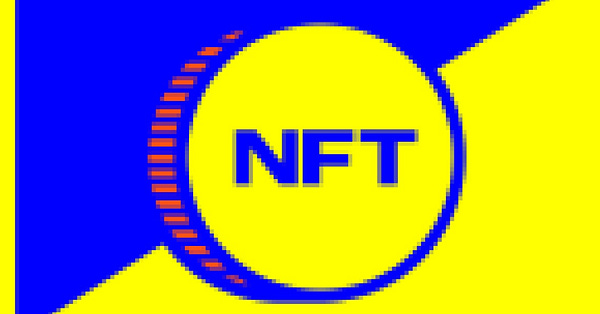Edition No. 19
Coinbase to the rescue; The SEC's new office; The Fed on Stables; El Salvador and BTC; Europol and organized crypto crime, and so much more. Here's what happened from 9/7/2022 - 9/12/2022.
Welcome to another edition of Around the Blockchain, the weekly letter dedicated to keeping readers like you up to date on the fast-paced world of Crypto & Law by airdropping current stories and projects directly to your browser.
Table of Contents:
1. On the Docket (Top 5 Stories of the Week)
2. Podcasts, Videos, & Blogs (The faces, voices, and pens of Web3’s brightest contributors)
3. Bird Watching (Tweet, tweet!)
4. Blockchain 101 (Our weekly educational segment! Written by law students)
5. Motion to Compel (Meant to provoke thought and action)
6. The Public Ledger (Highlights from our weekly library of sources, built by our Feedly AI)
7. Closing Statements
On the Docket
Five things you might have missed last week:
1. Coinbase Funds Lawsuit Against U.S. Treasury Following Tornado Cash Sanctions
Coinbase Bankrolls Lawsuit to Defend Privacy
Coinbase Global Inc., the largest U.S. cryptocurrency exchange, is funding a lawsuit against the U.S. Treasury Department over its sanctions against crypto mixing service Tornado Cash. See Joseph Van Loon et al. v. Department of the Treasury, 22-cv-920, US District Court, Western District of Texas (Waco).
The lawsuit was filed Thursday by six individuals including two Coinbase employees in U.S. district court in Waco, Texas. Plaintiffs claim the Treasury overstepped its authority in violation of constitutional free speech and due process rights. They further contend Tornado can’t be sanctioned because the agency’s Specially Designated Nationals and Blocked Persons List applies only to property, foreign countries, or foreign nationals threatening America’s national security.
Plaintiffs specifically claim the sanctions violate their First Amendment right to speak freely and donate to “important and potentially controversial political and social matters.” Additionally, the plaintiffs contend the Treasury’s move violates their Fifth Amendment due-process rights by freezing their digital assets within Tornado Cash.
According to the complaint, one plaintiff Tyler Almeida, a senior security risk analyst at Coinbase, used the service to anonymize donations to Ukraine out of fear his address would be targeted by Russian hackers.
Co-plaintiff, Preston Vanloon - an Ethereum Core Developer at Prismatic Labs recently interviewed by Laura Shin on the Unchained podcast – argues Tornado Cash allows him to experiment with decentralized applications pursing new crypto business models without disclosing his publicly known wallet address and personal identity. According to the lawsuit:
“Each is an American who simply wants to engage in entirely lawful activity in private.”
The lawsuit also names Treasury Secretary Janet Yellen and OFAC Director Andrea Gacki as defendants and seeks a court order permanently enjoining Treasury from including Tornado Cash on its sanctioned list.
As Coinbase stated in a blog post,
“The Treasury uses ‘a hammer instead of a scalpel.’”
Stay tuned for updates on this potentially precedent setting case.
By: Evan Santos
2. SEC to Establish New Office for Crypto Filings as Chairman Gensler says Intermediaries Should Register
Olive Branches & Trojan Horses
The Securities and Exchange Commission (SEC) announced it will establish a new office for cryptocurrency filings. The Office of Crypto Assets and an Office of Industrial Applications and Services will join the Division of Corporation Finance's Disclosure Review Program (DRP).
The DRP has long had offices to review company filings by issuers. According to the SEC, the two new offices will join the seven existing offices that provide focused review of issuer filings and are grouped by industry expertise furtherance of the Division’s work to promote capital formation and protect investors. The DRP anticipates the new offices will be established later this fall.
According to The Block , associate director for disclosure operations, Cicely LaMothe, told an audience at a legal conference in Washington the SEC sees the new office as necessary to address “unique and evolving” filings around crypto assets
Although the announcement was met with pushback by some in the crypto industry, many are praising the SEC’s move as a step in the right direction. Hailey Lennon, Partner at Brown Rudnick LLP, pointed out crypto would benefit if the SEC took proactive measures such as this, rather than engaging in regulation through enforcement, sometimes years after an alleged securities violation occurs. Similarly, Jeremey Hogan, Partner at Hogan & Hogan, thought the SEC’s move was a good first step but noted this should have been in place before the SECs lawsuits against crypto companies.
The SEC’s announcement comes at nearly the same time as Chairman Gensler’s speech stating companies helping to facilitate transactions in the cryptocurrency market should register with the SEC just like other market intermediaries.
Gensler said Thursday:
“Of the nearly 10,000 tokens in the crypto market, I believe the vast majority are securities. Offers and sales of these thousands of crypto security tokens are covered under the securities laws.” He emphasized: “I’ve asked the SEC staff to work directly with entrepreneurs to get their tokens registered and regulated, where appropriate, as securities.”
He further stated intermediaries in the crypto market provide a range of functions regulated by the SEC, including operating as an exchange, broker dealer, clearing agent, and custodian, and should register accordingly. "If you fall into any of these buckets, come in, talk to us, and register," Gensler told an audience of attorneys in Washington, D.C. While he has previously said crypto lenders fall under the SEC's purview, Thursday’s comments further clarify his stance on SEC jurisdiction over crypto.
By: Evan Santos
3. Fed Chair Powell Gives Speech Indicating Rate Hikes and His Stance on Crypto
The Fed Weighs In On Crypto Regulation
The Federal Reserve chair, Jerome H. Powell, spoke at the Cato Institute’s 40th Annual Monetary Conference on September 8th.
Powell’s comments on Thursday were his last public statements before the Fed’s policy setting committee meets later this month to determine how much to raise interest rates. Many investors expect the central bank to raise borrowing costs by three quarters of a percentage point.
The main headline coming from Powell’s speech was the Fed would continue acting strongly on inflation, and the U.S. central bank would likely raise interest rates again. In the U.S. “the clock is ticking” on inflation, forcing the Fed to act quickly, Powell said. The Federal Open Market Committee (FOMC)--the Fed's rate-setting body–next meets Sept. 20-21.
Powell also commented on crypto during his speech. As many expected, Powell appeared to take a dim view of unbacked crypto assets, noting they’re not a reliable store of value, and the public has little interest in using them as payment for goods and services.
Powell stressed the need for proper regulation if stablecoins are to have the essential properties of money–clarity, transparency, and full reserves:
“You want it to be guaranteed to be good if the public is going to look at it like it was $1. You want to have clarity, transparency, you want to have full reserves of very liquid high-quality assets and things like that.” That’s not the same as thwarting innovation, Powell noted.
“We don’t want to be in that place,” he said. “We want to be in favor of innovation, but also appropriate regulation.”
Powell’s comments on crypto were closely in line with remarks made Wednesday by Fed Vice Chair for Supervision Michael Barr in which he stressed the importance of greater regulatory oversight for crypto activities.
With the Cato Institute asking the questions, attention also turned to the possibility of a U.S. central bank digital currency (CBDC), or digital dollar, and the ability to protect users’ privacy.
While starting with the disclaimer that the Fed hasn’t reached a conclusion on the need for a digital dollar, Powell said, “You know, we all see what’s happening with the digital RMB,” referring to China’s soon-to-launch CBDC, also called e-CNY. According to Powell:
“We would not want a world in which the government sees, in real time, every money transfer that anyone makes with the CBDC. That would not be something that would be at all attractive in the American context.”
Needless to say, regulators are paying attention to crypto and will likely do so to an even greater degree as digital assets become increasingly integrated into the American and global financial systems.
By: Evan Santos
4. One Year Anniversary of El Salvador Accepting Bitcoin as Legal Tender
The Cavalry’s Report
September 7th marks one year since El Salvador began accepting Bitcoin as legal tender. Salvadoran law requires all companies to accept Bitcoin unless they are technologically unable to do so — yet only 20% of businesses actually accept the token coin according to a survey of 1,800 Salvadorian households. The government gave residents $30 of Bitcoin to use within the Chivo wallet app, as a way of incentivizing the use of Bitcoin. However, less than 10% of residents have used Bitcoin within the app again after spending the initial $30 of free Bitcoin.
The International Monetary Fund (IMF) has halted discussions with El Salvador over a planned $1.3 billion dollar loan, citing risks from Bitcoin. The government's 2,381 bitcoins bought with public funds are now worth less than half what the administration paid for them.
Pro-bitcoiners maintain that the digital currency helped drive tourism numbers up, attracted foreign investment and increased financial access to a largely unbanked nation.
The nation still intends to launch ‘volcano tokens’ which will act as a sort of government bond built on-chain. Bitfinex will serve as a trading platform for the bonds;
“Assuming cars were a failure because after the very first year Ford started production in 1896 no more than 2% of the population had a car would’ve been quite myopic,” said Paolo Ardoino, chief technology officer at Bitfinex. “The government has a long-term vision. The crypto industry is highly technological and that is the type of industry that everyone should want in its country.”
Perhaps it is too early to judge the success of President Bukele’s bold move to accept Bitcoin as payment in El Salvador.
By: Kleb
See also: blockworks, fortune, pyments, beincrypto
5. Cryptocurrency’s Key to Tackling Organized Crime: Europol
The 6th Global Conference on Criminal Finances and Cryptocurrencies concluded on 2nd September at Europol’s headquarters in The Hague, Netherlands.
Panelists explained how cryptocurrencies are being increasingly used by money launderers and are linked to a broad range of crimes including drug smuggling, sports match fixing and proliferation financing.
However, the open nature of blockchains is also providing authorities with new ways to tackle organized crime. According to Europol, all parties involved in combating crime, such as law enforcement, regulators, and the private sector, “are working hard to stay ahead of those who abuse crypto assets to commit crimes and launder money.”
New EU regulations are aimed at ensuring crypto is treated like any other asset for the purposes of anti-money. This, coupled with private companies providing analytical capability to trace funds laundered across multiple blockchains, gave attendees at the conference cause for optimism:
“These unique characteristics offer an unprecedented opportunity to investigate organized crime and money laundering networks and to eventually recover stolen funds.”
By: Kleb
Podcasts, Videos, and Blogs
The brightest voices & sharpest pens:


Bird Watching
Tweet, Tweet, Tweet!





Blockchain 101
Blockchain 101 is the product of our team’s desire to reduce what has typically been a significant educational barrier of entry into the crypto space. Our goal is to create a digestible and understandable curriculum accessible to anyone - while simultaneously helping our own nascent members to expand their understanding of the fundamentals of Web3.
Lesson No. 3: Consensus Mechanisms and the Merge
By: Suryavir Dawar, Tamara Szulc, and Janet Yihm
Welcome back readers! Last week, we covered challenges facing a blockchain project, what smart contracts are, and an introduction to Bitcoin and Ethereum. Today, we’re diving deeper into:
Consensus mechanisms;
Proof of Work (PoW) v. Proof of Stake (PoS); and,
The Merge
To learn more, read HERE.
Motion To Compel
Thought-provoking questions and arguments for your consideration each week:
Powell Addresses the Need for Stablecoin Regulation
By Nick Corso
Chair of the Federal Reserve, Jerome Powell, spoke at the Cato Institute's Annual Monetary Policy Conference last Thursday where he addressed the need for stablecoin regulation. Powell did not provide extensive detail, but he did express his intention to call on regulators to act on stablecoins.
Ultimately, Powell asserts if stablecoins purport to be money, they need to act like money. In other words, there needs to be certainty stablecoins will reflect the value and stability of the US Dollar, or other fiat currency, regardless of market conditions because this is the expectation–and promise–of stablecoins.
In short, Powell expressed support for stablecoins as he called on regulators to ensure they act as an effective and trusted form of money.
Discussion of stablecoin regulation has become increasingly prominent after the disastrous UST de-pegging a few months ago. Despite this, it is encouraging Powell refused to take an overly harsh stance on the matter. Instead, he seems to be interested in a pro-innovation approach coupled with reasonable regulation to promote user safety.
The Public Ledger
Highlights from the hundreds of sources gathered each week by our research AI. Always DYOR - but in case you don’t have time, here’s some of ours:
General News and Opinion
Andreessen Horowitz wants to fix NFT copyright with its ‘Can’t Be Evil’ license
Quentin Tarantino, Miramax Settle ‘Pulp Fiction’ NFT Legal Battle
Domain spoofing on the rise as cybercriminals see some crypto sites as a ‘perfect target’
Hermès reveals plans for Metaverse fashion shows, crypto and NFTs
Crypto real estate: the property market built on digital assets
Global Law Firm Recruits Crypto Experts to Boost Digital Commerce Practice
The Clearnet Drug Market and its Blood-Stained Relationship with Crypto
Binance identifies KyberSwap hack suspects, involves law enforcement By Cointelegraph
U.S. - Federal
US Fed Vice Chairman Brainard Calls for Regulations That Are Crypto-Specific
SEC Lodge no Objection to Ripple's Appeal to Seal Non-Party Identities in The XRP Lawsuit
Trademark applications for crypto, NFTs, and metaverse surge in 2022
Updates from the class action lawsuit against Elon Musk over Dogecoin
Shocking facts from troubled Crypto lender Celsius's 2021 court filing reviews
U.S. - State Law
NFTs, Crypto on the Radar of Minnesota, Michigan Tax Authorities **
Investors fear millions lost in Pennsylvania's largest cryptocurrency scandal based in South Philly
California law for crypto and VDAs takes a leaf out of India's licence Raj?
Investors fear millions lost in Pennsylvania's largest cryptocurrency scandal
Crypto Lender Celsius Misled Investors, Vermont Regulator Says
International
One Year Anniversary of El Salvador’s Bitcoin Adoption Turns Sour!
Law Enforcement Reclaims $30 Million From Axie Infinity Hack
Singapore's Whampoa Group to invest $100 mln via fund for digital assets
Report: Legal Experts Say Nigeria in Need of 'Clear-Cut Guidelines' for Crypto Industry
One Year On, Salvadorans Unconvinced of Bitcoin as Legal Tender
Zipmex facing legal battle with Thailand SEC over non-compliance
Russia to Introduce Legal Framework for Cryptocurrency Trade with Countries

Closing Statements
We want to hear from you:
If you enjoyed what you read today, subscribe to receive the weekly publication and give the authors a follow on Twitter for updates on what’s next for the newsletter!
If you didn’t enjoy it, let us know why! We value the opinion of our readers above all else. After all, this letter is for you. - Kyler & Chris
NEW TWITTER AND WEBSITE
We are thrilled to announce the launch of our new website and twitter profile. Check them out and let us know what you think!
Quote of the Week:
“Crypto can't solve wealth inequality, because nothing can (or should) guarantee identical outcomes. Instead, crypto offers equality of opportunity & wealth mobility. It hands people the power to choose a system that works best for them.” - Jacob Robinson
Ok, all done! You can go ahead and check your P/L now (Coin Market Cap)






















